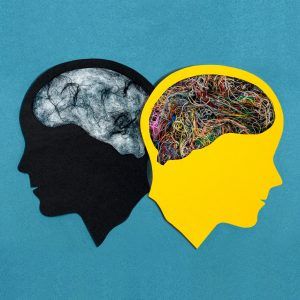Antipsychotic medications can be used to treat the symptoms of schizophrenia, bipolar disorder, and several other conditions.
They are not always appropriate. It largely depends on the severity of a patient’s symptoms.
While older antipsychotics often had harsh side effects, newer antipsychotics are more comparable to other prescription drugs in terms of risks. (Learn More)
Ziprasidone HCl is one common antipsychotic, sold under the brand name Geodon. It is not appropriate for children. Women who are pregnant, may become pregnant, or are nursing should talk to their doctor before using it.
Ziprasidone HCl has a number of potential side effects, the most serious of which are common among most antipsychotics. Familiarize yourself with side effects that indicate you should contact a doctor immediately, as well as those that signal you should call 911. (Learn More)
Aripiprazole is another antipsychotic, used to treat a variety of conditions, including bipolar disorder, schizophrenia, autism, and Tourette’s disorder. Unlike ziprasidone, it can help children as well as adults. Like any antipsychotic, it has negative side effects, and much like ziprasidone, there are several side effects that can indicate serious danger. (Learn More)
Quetiapine fumarate is an antipsychotic sold as Seroquel. It comes in tablets as well as capsules. Like aripiprazole, it can be used by adults or children, and it is primarily used to treat schizophrenia and/or bipolar disorder specifically. While some of its side effects are unique, it shares several potentially serious side effects with the above drugs. (Learn More)
All antipsychotics carry the potential to cause a condition called neuroleptic malignant syndrome (NMS). It is characterized by high fever, muscle rigidity, altered mental status, and dizziness. If you experience any of these symptoms, contact a doctor immediately. It is likely you will be pulled off your medication, as this condition is life-threatening. (Learn More)
You and your doctor will work together to figure out the medication that is right for you. It is likely you will have your medication changed multiple times, as your doctor determines what works best.
Make sure to have a thorough talk with your doctor about each medication’s benefits, drawbacks, and serious risks. (Learn More)

Antipsychotic Medications
Antipsychotic medications are most commonly used to treat bipolar disorder or schizophrenia (or sometimes both).
Bipolar disorder is characterized by serious mood swings, including depressive episodes and manic episodes that can make a person act impulsively and irrationally. In severe cases, someone in the midst of an episode may experience psychosis.
Schizophrenia causes a person to think irrational things despite evidence to the contrary, see and hear things that are not there, and think and speak in very disorganized ways.
Both conditions are lifelong, but their symptoms can be managed with medication. While bipolar disorder can be treated in several ways depending on the patient’s needs (discussed below), schizophrenia is treated exclusively with antipsychotics.
Despite antipsychotics having a negative reputation, newer antipsychotics like ziprasidone HCI, aripiprazole, and quetiapine fumarate are generally much safer than older antipsychotics. They still remain serious prescription medications that can cause dangerous side effects.
Ziprasidone HCl
Ziprasidone HCl (HCl stands for hydrochloric acid) is an orally administered antipsychotic that comes in capsule form. It is sold under the brand name Geodon.
The medication comes in doses of 20 mg, 40 mg, 60 mg, and 80 mg. There is a similar drug, ziprasidone mesylate, that is administered by injection and is intramuscular only.
Side effects of ziprasidone HCl can include the following:
- Nausea, vomiting, diarrhea, upset stomach, and/or loss of appetite
- Weight gain
- Drowsiness
- Cough, runny nose, and/or sneezing
- Skin rash
Contact your doctor immediately if you experience any of the following:
- Fainting or loss of consciousness
- Heart palpitations
- Chest pain
- Low white blood cell count
- High blood sugar
- Uncontrolled muscle movements
Pay attention for signs of an allergic reaction, which can manifest as hives, difficulty breathing, or facial or throat swelling. Meanwhile, a severe skin reaction may trigger an elevated body temperature, painful throat, burning in the eyes, skin irritation, and/or a red or purple skin rash, which may peel. In either case, call 911 immediately.
This drug has not been shown to be safe or effective in children. If you plan on becoming pregnant, are pregnant, or are nursing, talk to a doctor before taking ziprasidone.

Aripiprazole
Aripiprazole is an antipsychotic that is often prescribed for schizophrenia, bipolar disorder, and a variety of other conditions, such as autism and Tourette’s syndrome. It is fairly well known to be effective and reasonably safe for children. The exact appropriate age varies depending on the condition it is used to treat.
The medication is usually taken once a day, with or without food. It comes in a traditional tablet, a solution, or a different kind of tablet that dissolves in the mouth.
Some tablets even have special sensors in them that can interact with a wearable patch and a smartphone app. Talk to your doctor about the proper way to take such pills and use these devices.
Potential side effects of aripiprazole include the following:
- Headache
- Nervousness or restlessness
- Dizziness
- Heartburn
- Drowsiness
- Changes in appetite and/or weight gain
- Constipation, stomach pain, and/or diarrhea
- Increased salivation
- Pain in the arms, legs, or joints
Serious side effects that require immediate attention from your doctor are largely the same as those associated with ziprasidone. If you experience seizures or any changes in your vision, emergency immediate attention is needed. As with ziprasidone, pay attention for any sign of an allergic reaction, including a skin reaction, and call 911 if you see any troubling symptoms.
Quetiapine Fumarate
Quetiapine fumarate, sold under the brand Seroquel, is an antipsychotic that comes in oral tablets or, for larger doses, capsules. While not without risks, it can help both children and adults with the symptoms of schizophrenia and/or bipolar disorder.
The following are potential side effects of quetiapine fumarate:
- Nausea, vomiting, diarrhea, upset stomach, and/or loss of appetite
- Weight gain
- Drowsiness
- Cough, runny nose, and/or sneezing
- Skin rash
- Dizziness
- Lightheadedness
- Trouble sleeping
- Dry mouth and sore throat
- Changes in appetite and/or weight gain
- Missed menstrual periods
- Breast swelling or discharge
- Mood and behavior changes
Older adults with dementia may have a slightly increased chance of death while on this drug.
Be on the lookout for signs of these serious symptoms, including those of a potential allergic reaction (discussed above). These serious symptoms are very similar among all antipsychotics.
Neuroleptic Malignant Syndrome (NMS)
Neuroleptic malignant syndrome (NMS) is a rare but very serious risk when taking any antipsychotic.
Symptoms of this dangerous condition include high fever, muscle rigidity, altered mental status, and faintness. These symptoms should be reported to your doctor immediately.
If you experience NMS, it is likely you will be taken off the relevant medication immediately for your own safety.
There are a number of conditions that are sometimes confused for NMS, but these are serious in their own right. Regardless, if you experience any of the noted symptoms or are unsure if you have, talk to your doctor without delay.
What Is Right for Me?
Figuring out what medications work best for you will involve a discussion with a knowledgeable doctor. Do not withhold information in this discussion. Withholding information about substance use could prove extremely dangerous.
Familiarize yourself with the specifics of whatever medication you are on. Your doctor should be able to thoroughly go through the risks and benefits of your prescribed medication.
Make sure you understand how to take it properly. Taking the medication incorrectly could reduce its effectiveness, make you sick, or even be deadly.
It is likely that your medication will need to be adjusted several times throughout your life. Doses may change, or you may even be put on different types of medication.
Sometimes, it may be found that antipsychotics are not for you, and a different option will be tried instead. It largely depends on your condition and how your body reacts to treatment.
References
Bipolar Treatment: Are Bipolar I and Bipolar II Treated Differently? (February 14, 2018). Mayo Foundation for Medical Education and Research (MFMER).
Geodon: Professional. (December 10, 2018). RxList.
Geodon: Side Effects. (December 10, 2018). RxList.
Aripiprazole. (February 15, 2019). MedlinePlus.
Seroquel: Professional. (March 16, 2017). RxList.
Bipolar Disorder. (April, 2016). National Institute of Mental Health.
Seroquel: Side Effects. (March 16, 2017). RxList.
Schizophrenia. (April 10, 2018). Mayo Foundation for Medical Education and Research (MFMER).
HCl. Farlex.







